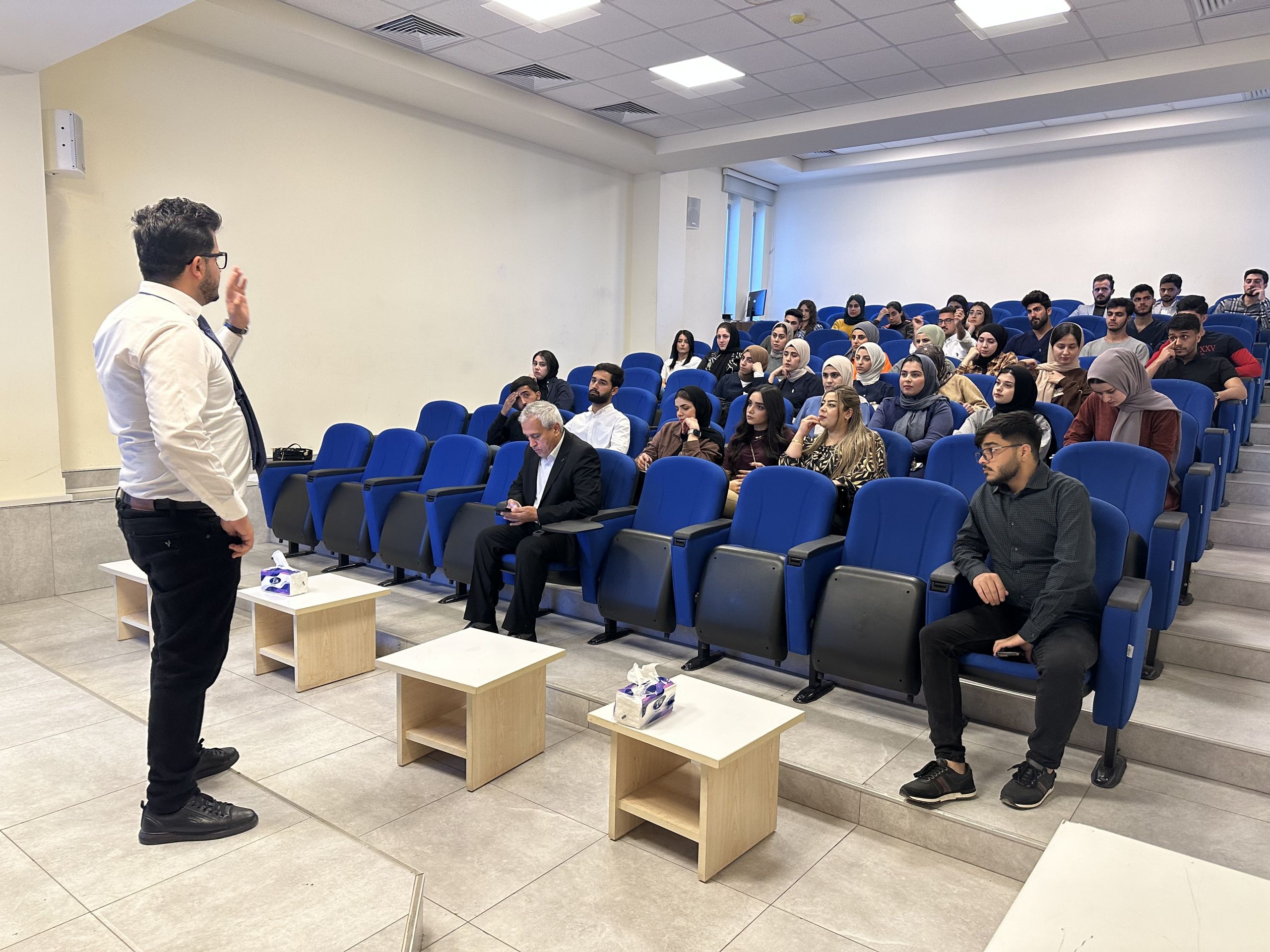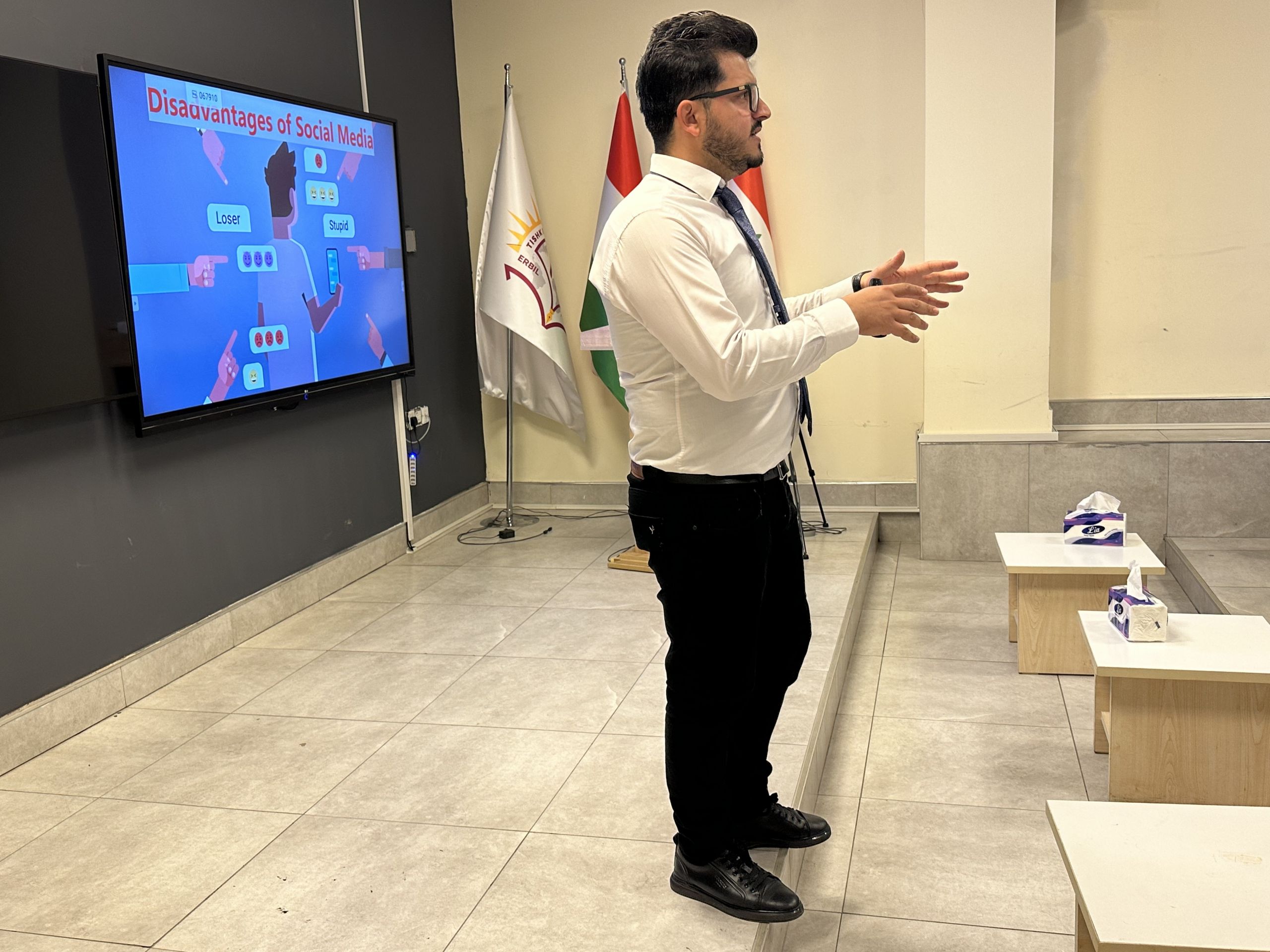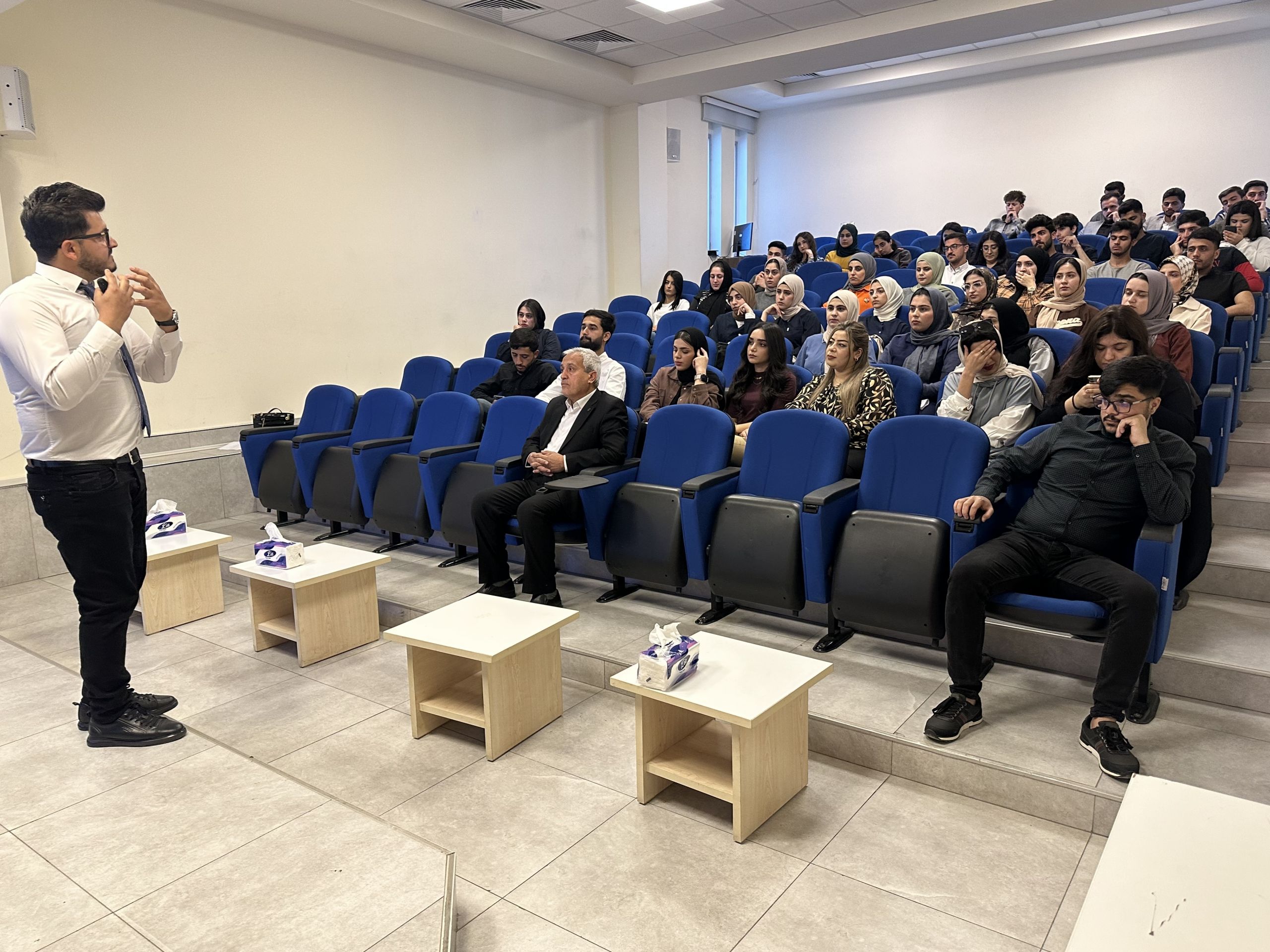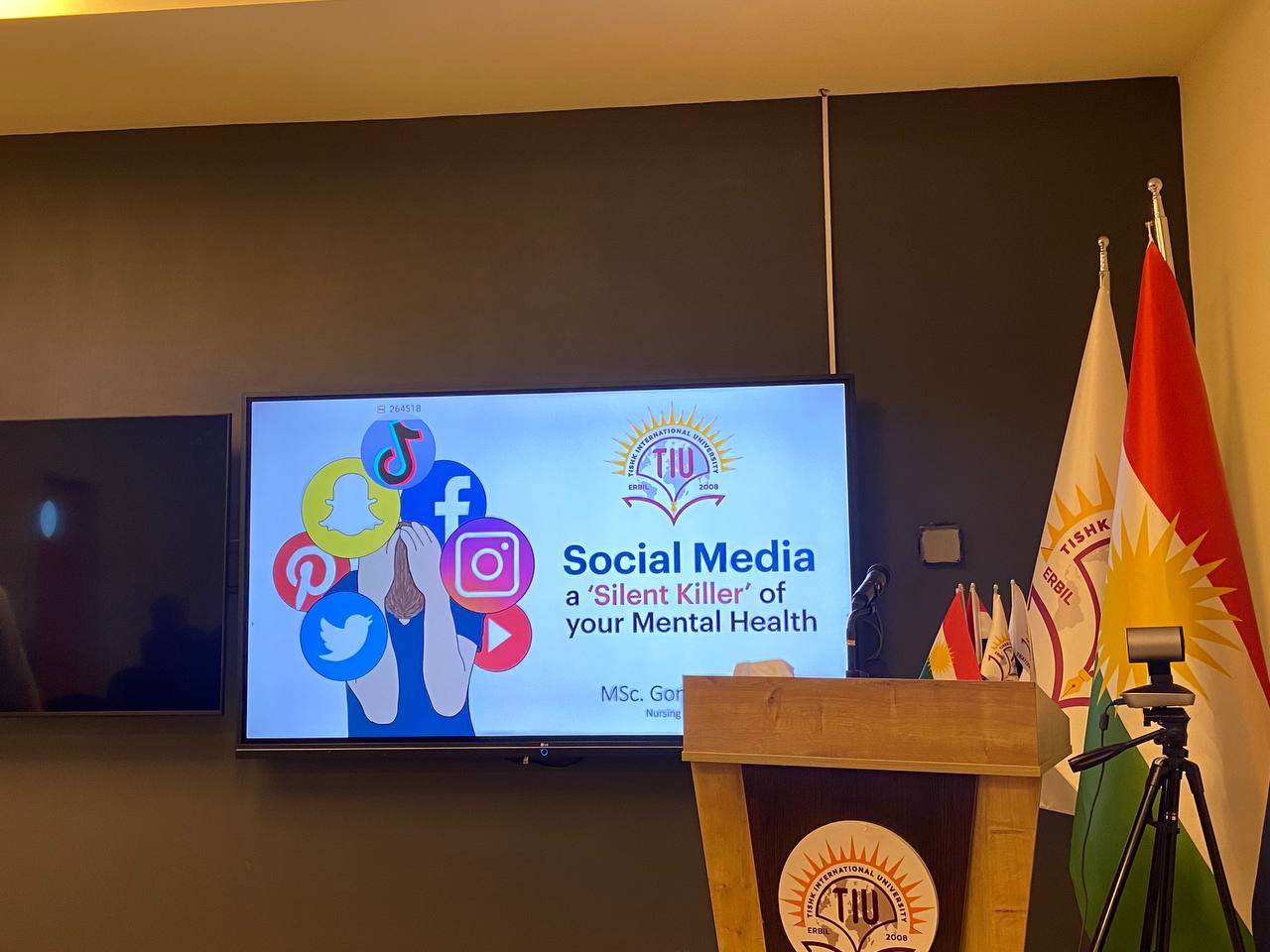Cyber Security of Social Media and Silent Killer of Mental Health
The Nursing Department of the Faculty of Nursing organized a seminar by Mr. Goran N. Saleh titled “Cyber Security of Social Media and Silent Killer of Mental Health” on 7th March 2023 for nursing students.
Many of us today rely on social media platforms like Facebook, Twitter, Snapchat, YouTube, and Instagram to find and connect with one another. While each has advantages, it’s important to remember that social media can never replace face-to-face human interaction. It takes face-to-face contact with others to activate the hormones that reduce stress and make you feel happier, healthier, and more positive. Spending too much time on social media, ironically for a technology designed to bring people closer together, can actually make you feel lonelier and more isolated and exacerbate mental health problems like anxiety and depression.
In 2021, there are 4.2 billion active social media users worldwide, 4.7 billion by 2025. 25.72 million 63% of the whole population. TikTok is one of the fastest-growing social media platforms, with over 1 billion active users worldwide as of 2021. Snapchat has around 500 million monthly active users.
The disadvantages of social media are:
A- Mental Health:
1- Addiction and dependency on social media platforms.
2- Cyberbullying and harassment.
3- Negative impact on self-esteem and body image.
4- Exposure to inappropriate content.
B- Physical Health:
1- Increased sedentary behaviour and lack of exercise.
2- Disruption of sleep patterns.
3- Vision problems due to excessive screen time.
C- Social Life:
1- Decreased face-to-face communication and social skills.
2- FOMO (fear of missing out) and its negative impact on mental health.
3- Fake news and misinformation lead to social conflict and division.
If you’re spending too much time on social media and experiencing feelings of sadness, dissatisfaction, frustration, or loneliness, it may be time to reconsider your online habits and find a healthier balance.















